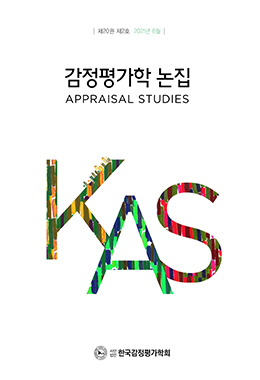우리나라의 주택공급제도는 선분양제와 후분양제를 모두 허용하고 있지만, 주택건설업체의 자금난 등 금융지원 체계의 어려움 등으로 주택업계에서는 선분양제를 선호하고 있다. 우리나라의 선분양제도의 문제점인 주택가격 폭등으로 시세 차익을 기대하는 수분양자 또는 투기 세력을 차단하기 위하여, 단계적으로 후분양제를 도입하여야 함에도 주택업계의 초기 자금난과 미분양 위험 때문에 신속하게 후분양제를 도입하는 데 어려움이 있다.
본 연구에서는 주택시장의 정상화를 위해 주택을 완공 후 공급하는 후분양제도를 확대하기 위하여 위례 신도시 공공분양을 민간부문 중심으로 후분양제 도입을 위한 사업가치 평가 사례를 분석하였다. 본 연구는 민간 부문에서 공공택지를 우선 공급받아 후분양제를 시행하는 경우, 다양한 인센티브를 반영한 후 선분양제와 후분양제(공정률 60%, 100%)별 분양가격을 책정하여 민간분양주택의 사업성 가치를 평가하였다. 선분양의 순현재가치(NPV)는 수익이 발생하지만, 정부의 인센티브를 미적용 시 후분양에서는 사업성이 낮아 현시점에서는 후분양 도입이 어려운 것으로 나타났다. 하지만 본 연구에서 실물옵션 모형을 적용하여 후분양에 따른 미래의 불확실성을 옵션 가치로 추정한 결과, 사업추진이 가능한 것으로 산출되었다. 따라서, 민간 부문에서는 정부의 다양한 인센티브를 활용하여 신중히 후분양제를 도입할 필요성이 있다.
Korea’s housing supply system allows for both the pre-sale and post-sale systems. However, the housing industry prefers the pre-sale system due to difficulties in obtaining financial support, particularly concerning housing construction companies. There needs to be a way to prevent purchasers or speculators from expecting development profits due to a surge in housing prices, an ongoing problem with Korea's pre-sale system. Despite the government’s introduction of the post-sales system in stages, it is difficult to quickly introduce the post-sales system due to the initial financial difficulties in the housing industry and the risk of unsold houses after completion.
This study analyzes the case of business value evaluation of the Wirye New Town, focusing on the private sector for the purpose of expanding the post-sale system which supplies houses after the completion of the construction to normalize the housing market. This study evaluates the feasibility of private sale housing by setting the sale price for each pre-sale system and post-sale system (60% and 100% completion rate) after reflecting various incentives when the private sector first receives public housing land and implements the post-sale system.
The study shows that while the net present value (NPV) of pre-sale generates revenue, if the government incentives are not applied, it is presently difficult to introduce a post-sale system due to low business viability. However, after estimating the future uncertainty caused by an optional post-sale system by applying the real option model in this study, it indicates that the project could be pursued. Therefore, in the private sector, it is necessary to carefully introduce the after-sales system using various government incentives.




